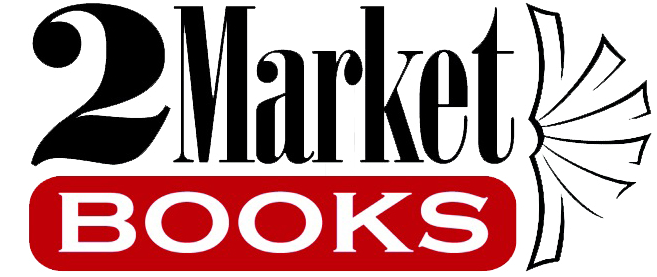Components of An Author Website
I have recently updated my own website for my marketing business, 2Market Books. It has been an interesting learning process on how to handle WordPress and how necessary a professional website designer is to creating the perfect website.
This process got me thinking of author websites and how important they are to an author’s platform and visibility. The first aspect to think about when setting up any website, including your author website, is your brand. Your brand is what you stand for, who you are, and the message you want to convey. An author’s brand is composed of what they write, why you write it, and your personality.
For example, Nora Roberts is known for light, happy, and magical romances. Stephen King is known for his dark, scary, and gritty horror novels, and Michael Crichton is known for his technical, scientific techno-thrillers. There are plenty of authors who write techno-thrillers that are less scientific than Crichton and there are horrors that are less scary than King. These authors’ brands are guided both by their genre, by what their books are like, and by their personalities.
Your author brand should be shown in your website through the colors and images you use. This will set the tone for your brand.
Once you have figured out what you want your brand to look like and what message you want it to convey, you can start creating your actual website. Below are the main components for any successful author website:
- Home page– This page should convey your author brand more heavily than any other and should display your most current titles. Your home page should also include:
- Social Media Links– These should be at the top of the website and easy for your readers to find.
- Mailing List Sign Up– This is where fans of your books will sign up for the latest updates from you as an author, and gives you direct access to readers for the launch of your new books.
- Books page– This page should have the covers, titles, product descriptions, and buying links to all of your books. Authors can also have excerpts for each book if they choose.
- About page- This page should include your author bio and author photo to give fans an idea of who you are. Author bios are typically in third person to retain professionalism and to keep a branded message across all platforms.
- Contact page– This is the page where fans can contact you through email and should include an email form.
The four pages above are the minimum needed, but there are optional pages that can add content and value to your author website.
Optional pages:
- Events page– If you as an author are doing regular speaking events or are often writing for other people’s blogs, this is a great page to have to keep your fans up to date on what you are doing and direct fans to the events.
- Reviews page– This is a page to have if you have many reviews on your books and you would like to share snippets of them with fans.
- Extras– This is a page for interesting content or announcements for you as an author. If you have pictures of your characters or playlists of music that go with your books this is the page for it.
- Blog page– This is a page where your author blog belongs. Not all authors need a blog. If you do not have a consist topic you would like to post on, then a blog is most likely not for you.
An author website is a vital tool for any author platform as it gives an author a hub that they control completely. This area can convey your message in the most complete way and gives you the most control. Using these different components, you are well on your way to creating a distinct author brand.
